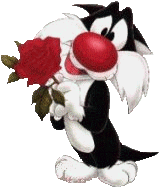El Doctor Jorge Converso fue mi profesor de Traducción Literaria y escribió un artículo EN INGLÉS muy valioso que copio abajo.
¡Ojalá les guste tanto como a mí!
Aquí va:
Are English Cats different from Argentine cats?
By Jorge Converso
In Never Stop on the Motorway,a short story by British author Jeffrey Archer, the protagonist hits a cat when she is driving on the motorway. A small black creature had shot across her path, and despite her quick reactions, she hadn’t been able to avoid hitting it. Diana swung onto the hard shoulder. And then she saw it, lying on the grass verge. A cat that had crossed the road for the tenth time. She stepped out of the car, and walked towards the lifeless body. The cat had crossed the road for the tenth time because, unlike Argentine cats, English cats have nine lives, not seven. Thus, for the text to make sense in Spanish, the translation should be por octava vez rather than por décima vez. A cultural difference we can’t ignore when it comes to translating.
Talking about cats, it should be pointed out that the sight of a black cat affects people in different ways in Argentina and in England. In Argentina, a black cat crossing your path is a bad omen, whereas in England it means you will be lucky. Different countries, different superstitions. That is why the American film Friday 13 became Martes 13 when it was shown in our country. Another cultural difference to be taken into account. In Tim Parks´ novel Loving Roger, one of the characters considers the possibility of committing suicide: I would go and tell somebody (I didn’t know who, the Samaritans maybe, or Mum’s vicar who said he would never throw the first stone. But it would be the police in the end) -tell them how it had been between us, Roger and I… In England, The Samaritans is an organization which tries to help people in despair, especially those thinking of committing suicide. Therefore, it should be translated as: Centro de Asistencia al Suicida. The choice of the Spanish word Samaritanos would be quite inappropriate in this context, for the Argentine reader would only associate it with the biblical story of the Good Samaritan (Luke 10: 30.37), and the idea of suicide, which is very clear in the original, would be overlooked in Spanish.
In England, the word tea is sometimes used as a synonym of supper, especially by working class people, in which case the translation should be cena rather than té. By the way, those people who call supper tea also call lunch dinner.
Melinda is a twenty-year-old university student in Ruth Rendell’s A Judgement in Stone. Even though her parents are well-off, she sides with the working class. Geoff, one of the villagers, praises the hat she is wearing. Trying to minimize its value, Melinda replies: .I got it in the Oxfam shop.. Oxfam is the abbreviation of Oxford Committee for Famine Relief, an organization founded in Oxford in 1942 which provides practical relief in developing countries. La tienda de Oxfam would mean next to nothing to the Spanish-speaking reader.
Perhaps, in Spanish Melinda should say something like Lo compré en una feria Americana or Es de segunda mano. In The Human Factor, a novel by Graham Greene, we read: “and again he regretted his reply. It was always safer to be inconspicuous. There were times, which grew more frequent every year, when he daydreamed of complete conformity, as a different character might have dreamt of making a dramatic century at Lord’s.”A ccording to the Longman Dictionary of English Language and Culture, a century means 100 runs made by one cricket player in one innings.
(innings: the period of time during which a cricket team or player bats). Lord’s is the most important cricket ground in Britain. In the case of Greene’s novel, context does not enable the Spanish-speaking reader to infer that the topic is cricket. Therefore, some words should be added for the meaning to be conveyed in Spanish, as in Argentina, owing to cultural distance, few people know that Lord’s is a cricket ground: hacer una jugada de cricket memorable en Lord’s. Literary references can also be a drawback for translators. In Look Back in Anger, the famous play by John Osborne, which marks the beginning of the .angry generation, we find reference to one of the main characters in Bernard Shaw’s play Candida:
CLIFF: I get mixed up with all your women. Was she the one all those years older than you?
JIMMY: Ten years.
CLIFF: Proper little Marchbanks, you are!
In Candida, Marchbanks is an eighteen-year old poet who falls in love with Candida, a married woman older than him. Un perfecto Marchbanks is likely to mean nothing to the average Argentine reader. In this context, something like un adolescente precoz would be more suitable.
These are just a few examples that go to prove that cultural references and cultural distance are not a minor issue in the translation process.
A conscientious translator should be fully aware of them to avoid making gross mistakes, and to prevent his rendering of the original into the target language from being unintelligible. This implies the fact that a good translator should have a solid cultural background that enables him or her to avoid falling into the traps laid by cultural references in the source text. Thank God, countries are different. Otherwise it would be excruciatingly boring. It takes all kinds to make a world, but sometimes that.cultural variety makes a translator’s life difficult.
Igualmente pueden verlo en el enlace que copio a continuación.
http://www.salvador.edu.ar/publicaciones/ideas/i/17.pdf










